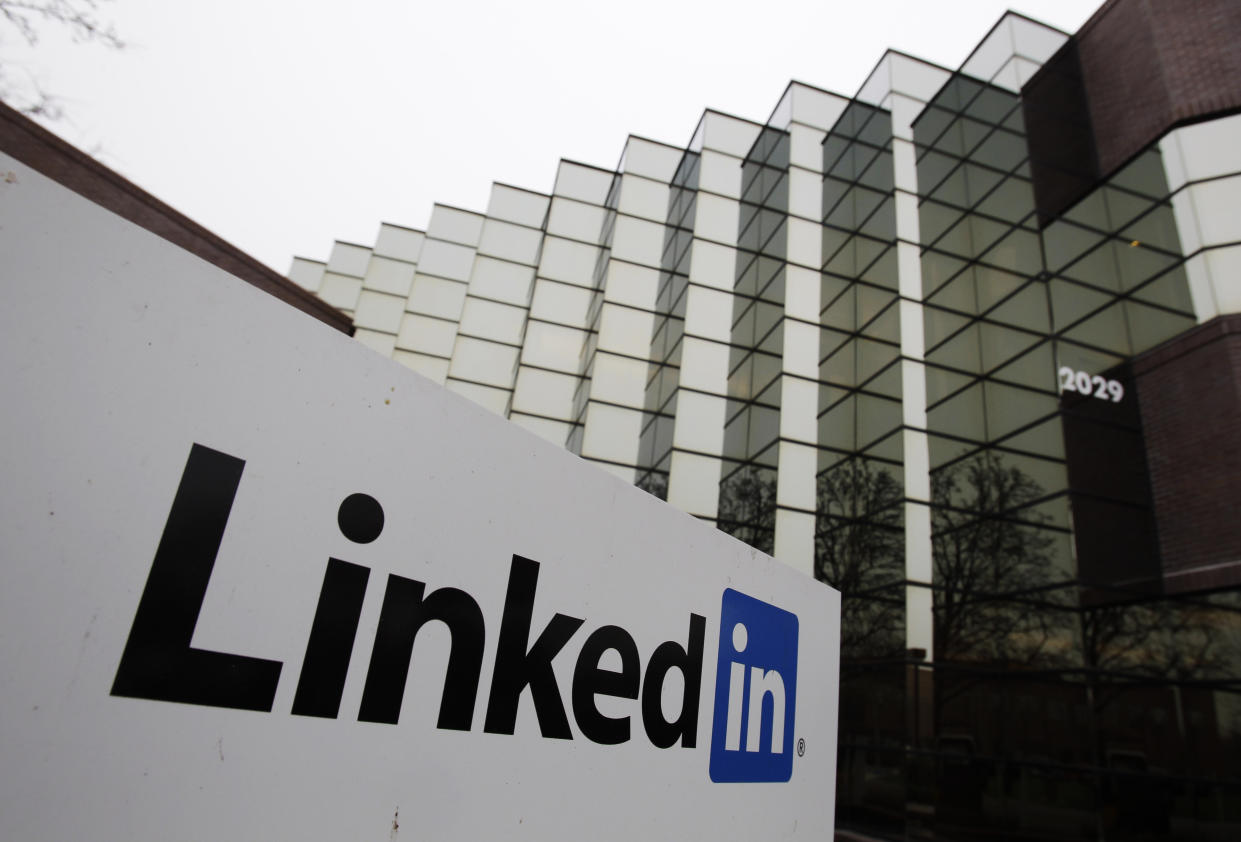Posting about mental health struggles could hurt how a potential employer views a worker, study finds
Many workers use TikTok, Instagram, and LinkedIn to describe their struggles with anxiety and depression to help destigmatize mental health issues. But those social media posts could backfire and end up hurting their job prospects, according to new research.
A recent study published in the Journal of Business and Psychology showed employers had more negative perceptions about the temperament of a worker who posted about their mental health on LinkedIn versus those who didn't.
The study underscores the potential drawbacks of posting about mental health online. Experts recommended that users weigh the pros and cons of sharing their mental health struggles on social media, especially when job hunting.
"It's been going on for a while that employers look at people's social media," said Lynn Berger, a career coach and mental health counselor in New York, who was unaffiliated with the study. "I think that you have to, when you post something, be aware of that and realize that there could be some ramifications from that — good and bad."
To tease out how employers responded to such postings, the researchers recruited 409 individuals with past hiring experience and split them into four groups. As explained in the study and its press release, the researchers showed one group a fake, standard LinkedIn post and the second a fake profile with a status about anxiety and depression. They showed a third group the group the LinkedIn profile with no mention of illness and a fake audio interview, and showed the fourth a profile featuring mental illness and a fake audio job interview.

The study participants viewed the potential employees with mental illness as more "neurotic" and less "conscientious" than other employees, regardless of their gender. However, as the researchers noted, while the mental health postings shaped perceptions about temperament, it did not influence expectations about a worker’s future performance.
Still, such preconceived notions can affect a worker even after an employer has met or hired them.
"Imagine that you're hired and on day one, people are already consciously or subconsciously expecting you to be a bit more neurotic or a bit less conscientious," said Lori Foster, a professor of industrial-organizational psychology at North Carolina State University, who co-authored the study. "This goes beyond a little bit what we studied, but I believe that it can affect how the person is related to and the opportunities that they may be given once they're in the workplace."
Both researchers said they believed in the importance of destigmatizing mental health and called for more research. But they also believe individuals should make informed decisions when posting online.
"This study is just one datapoint for those individuals to consider when deciding whether or not to disclose. Just understanding that this can potentially impact your professional image," said Jenna McChesney, an assistant professor of psychology of industrial-organizational psychology at Meredith College, who also co-authored the study. "We're all excited about trying to destigmatize mental health. It's a very important thing. But also understanding that maybe we're not there yet."

When it comes to posting, social media and mental health experts have several tips.
Luke Lintz, a social media expert, advised social media users to consider their future job prospects carefully before posting – even if they already have a job. He encouraged them to consider whether they really want to make their content public.
"The average person nowadays is changing jobs very constantly and so even if you're already hired, you’ve got to be thinking about the implications of future job hires," he said. "So what I would say is that if there are concerns about that, but you still want to be on social media and you want to be posting that content for a reason, just being on private on your social media platform — just for your personal friend base."
Dr. Emily Anhalt, clinical psychologist and owner of Coa, a company that helps clients strengthen their mental health, distinguished between the different ways someone might post on social media and encouraged users to think about how they might be perceived online. She said some might post in efforts to share their experiences and express solidarity. Others, she said, might simply post to vent.
"I think there's a difference between saying I've struggled with my mental health and I want people to know that we all have work to do there, [that I] have the support I need, and I believe that I can show up at work as my best self," she said. "A post like that is different than someone who just kind of leaks all over the place and the post itself doesn't feel like it's coming from a place of emotional stability."

She proposed an alternate framework for how someone might want to think about posting online. She said should consider a concept she calls "boundary vulnerability," especially on professional forums like LinkedIn.
"Boundary vulnerability is the idea that we should share enough of ourselves with others in the workplace, that it invites people to connect with us, that invites work appropriate closeness without sharing so much that we're asking people to be our therapists, to clean up our emotional mess," she said.
Ryan Niddel, a health and wellness advocate who has coached entrepreneurs, said that while there might be downsides to posting about mental health issues on LinkedIn, he still feels workers can do so in positive ways. It’s important that job seekers show their ability to overcome adversity.
"Seeing 'I'm struggling today. Here's why' and then seeing somebody pull themselves out of it shows me resilience, that shows me problem solving, that shows me a whole bunch of positive attributes," he said. "Versus saying this person's unhireable because six weeks ago, they said they were depressed and didn't want to get out of bed and they were struggling. I think there's something to be commended."
Berger, the career coach and mental expert agreed, but urged caution.
"So I think there [are] benefits of sharing and people seeing your openness and it's going to attract some people. Some people are going to, say, 'wow, that's really bold.'" she said. "It's just that you don't know."
Editor's note: A previous version of this story misstated the institution where Jenna McChesney is a professor. The correct institution is Meredith College.
Dylan Croll is a Yahoo Finance reporter.
Read the latest financial and business news from Yahoo Finance
